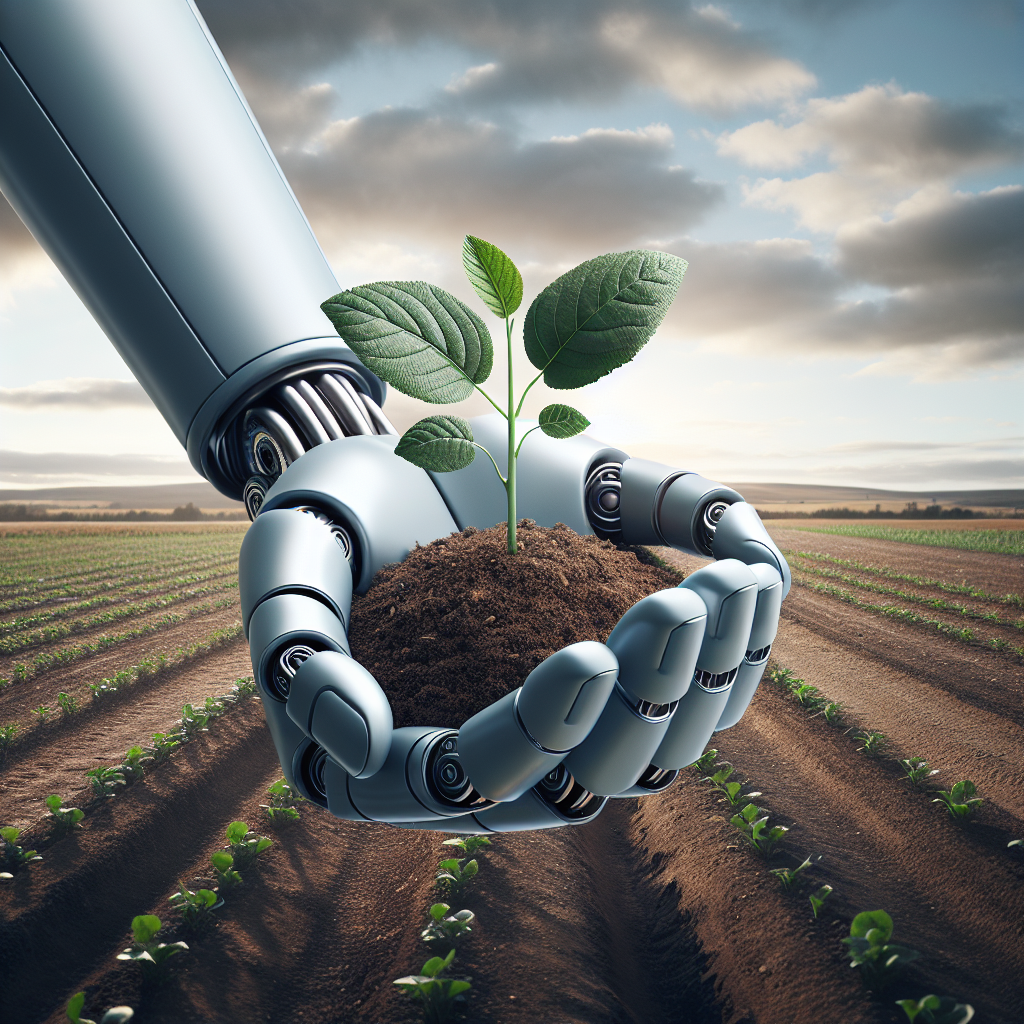The Impact of AI in Agriculture: A Comprehensive Overview
The agriculture industry plays a crucial role in our society by providing food to a growing global population. As the world’s population continues to increase, the demand for food is also on the rise. To meet this demand, farmers are turning to technology to improve their productivity, efficiency, and sustainability. One of the most promising technologies that is transforming the agriculture industry is Artificial Intelligence (AI).
AI refers to the simulation of human intelligence processes by machines, including learning, reasoning, and self-correction. In agriculture, AI is being used to analyze data, make predictions, and automate tasks, leading to increased efficiency and productivity. From planting and harvesting to pest control and irrigation, AI is revolutionizing the way farmers operate.
Impact of AI in Agriculture
1. Precision Agriculture: AI is enabling farmers to practice precision agriculture, which involves using technology to optimize crop yields and minimize waste. By analyzing data from sensors, drones, and satellites, farmers can determine the exact amount of water, fertilizers, and pesticides needed for each section of their fields. This targeted approach not only increases crop yields but also reduces costs and environmental impact.
2. Crop Monitoring: AI-powered drones and satellites are being used to monitor crop health and detect pests and diseases early on. By analyzing images of crops, AI algorithms can identify areas that need attention, allowing farmers to take corrective action before the problem spreads. This proactive approach helps farmers protect their crops and improve yields.
3. Weed and Pest Control: AI is also being used to develop autonomous robots that can identify and remove weeds without the need for herbicides. These robots use AI algorithms to differentiate between crops and weeds, allowing them to target only the unwanted plants. Similarly, AI-powered sensors can detect pests and diseases in real-time, enabling farmers to take immediate action to prevent damage.
4. Climate Prediction: AI is helping farmers better prepare for the effects of climate change by analyzing historical weather data and making predictions about future weather patterns. By using AI-powered models, farmers can adjust their planting and harvesting schedules to optimize crop yields and minimize losses. This predictive capability is crucial for ensuring food security in the face of changing climate conditions.
5. Supply Chain Management: AI is streamlining the agricultural supply chain by optimizing logistics and reducing waste. AI-powered algorithms can analyze market trends, demand forecasts, and transportation routes to help farmers make informed decisions about when and where to sell their products. This data-driven approach not only increases profitability but also reduces food waste by ensuring that products reach consumers in a timely manner.
FAQs
Q: How is AI being used in livestock farming?
A: AI is being used in livestock farming to monitor animal health, track behavior patterns, and optimize feeding schedules. By analyzing data from sensors and cameras, AI algorithms can detect signs of illness, identify stress factors, and improve feeding efficiency. This technology helps farmers ensure the well-being of their livestock and maximize production.
Q: Is AI affordable for small-scale farmers?
A: While AI technologies can be costly to implement, there are affordable options available for small-scale farmers. Some companies offer AI solutions on a subscription basis or provide access to AI tools through mobile apps. Additionally, government grants and subsidies may be available to help farmers offset the costs of adopting AI technology.
Q: How secure is the data collected by AI systems in agriculture?
A: Data security is a top priority for AI systems in agriculture, as farmers rely on sensitive information to make important decisions about their operations. AI companies use encryption and other security measures to protect data from theft and unauthorized access. Farmers should also be vigilant about who has access to their data and ensure that they are using secure platforms to store and analyze information.
Q: Can AI replace human labor in agriculture?
A: While AI can automate certain tasks in agriculture, such as planting and harvesting, it is unlikely to replace human labor entirely. Farmers play a critical role in overseeing operations, making decisions, and responding to unforeseen challenges. AI technology is meant to complement human labor and enhance productivity, rather than replace it.
In conclusion, AI is revolutionizing the agriculture industry by improving efficiency, productivity, and sustainability. From precision agriculture and crop monitoring to weed control and climate prediction, AI technologies are transforming the way farmers operate. As the demand for food continues to grow, AI will play an increasingly important role in ensuring food security and sustainability for future generations.

